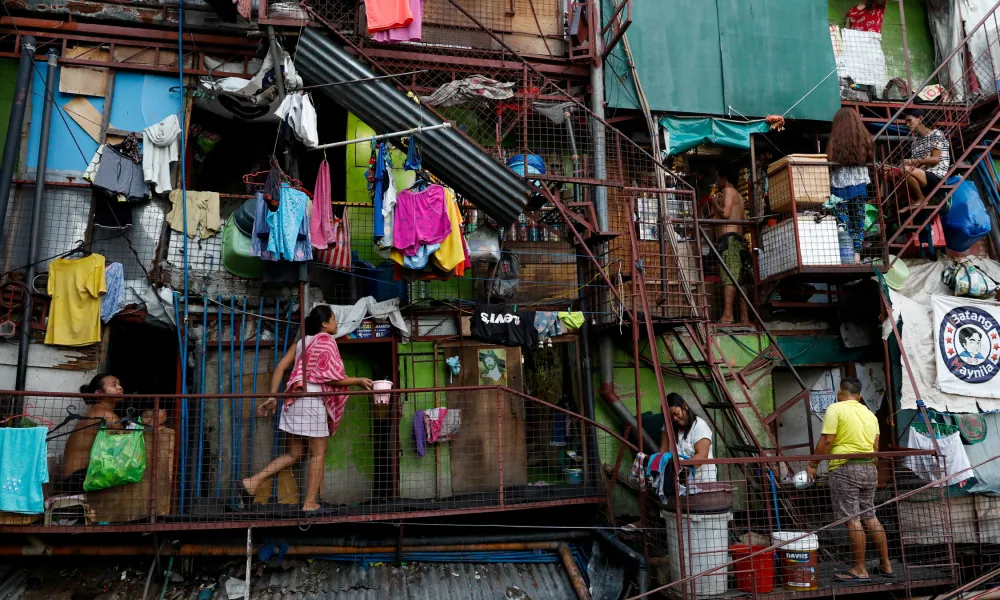Human Interest
Covid restrictions send 4.7 million more people into “extreme poverty” in Asia, organization claims

Restrictions brought on by the Covid pandemic have added 4.7 million more people to Southeast Asia’s extremely poor in 2021, which reversed gains made in fighting poverty, the Asian Development Bank (ADB) said on Wednesday.
The ADB have urged governments to take steps to boost economic growth. The number of people in extreme poverty, this is defined as those living on less than $1.90 a day, was 24.3 million last year, or 3.7% of Southeast Asia’s collective 650 million population, the ADB said in a report.
Before the pandemic, figures for those in extreme poverty in Southeast Asia had been on the decline, with 14.9 million in 2019, down from 18 million in 2018 and 21.2 million in 2017.
“The pandemic has led to widespread unemployment, worsening inequality, and rising poverty levels, especially among women, younger workers, and the elderly in Southeast Asia,” said ADB President Masatsugu Asakawa.
Asakawa urged governments to improve health systems, streamline regulations to boost business competitiveness, invest in smart, green infrastructure and adopt technology to speed up growth.
The ADB said there were 9.3 million fewer employed workers in Southeast Asia in 2021 as Covid-19 curbs reduced economic activity, leaving millions without a job.
Its 2021 growth forecast for Southeast Asia was 3.0%. Southeast Asia was projected to grow 5.1% this year but the Omicron Covid-19 variant could cut its growth outlook by as much as 0.8 percentage points if it spreads further and triggers supply and demand shocks, the ADB said.
Ramesh Subramaniam, director general at the ADB, said Southeast Asia’s growth outlook will be revised to reflect the impact of the Russia’s invasion of Ukraine, which he expected to be “manageable.”
“The challenge is going to be what does the medium term holds. Is this going to affect the region’s recovery from the pandemic and the fiscal challenges it will face?” Subramaniam said at the report’s launch. “How can we make sure that any knock-on effects don’t become serious in the case of Southeast Asia?”
Terry A. Hurlbut has been a student of politics, philosophy, and science for more than 35 years. He is a graduate of Yale College and has served as a physician-level laboratory administrator in a 250-bed community hospital. He also is a serious student of the Bible, is conversant in its two primary original languages, and has followed the creation-science movement closely since 1993.
-

 Accountability3 days ago
Accountability3 days agoWaste of the Day: Principal Bought Lobster with School Funds
-

 Executive1 day ago
Executive1 day agoHow Relaxed COVID-Era Rules Fueled Minnesota’s Biggest Scam
-

 Civilization9 hours ago
Civilization9 hours agoWhy Europe Shouldn’t Be Upset at Trump’s Venezuelan Actions
-

 Constitution2 days ago
Constitution2 days agoTrump, Canada, and the Constitutional Problem Beneath the Bridge
-

 Civilization1 day ago
Civilization1 day agoThe End of Purple States and Competitive Districts
-

 Christianity Today8 hours ago
Christianity Today8 hours agoSurprising Revival: Gen Z Men & Highly Educated Lead Return to Religion
-

 Civilization5 days ago
Civilization5 days agoThe devil is in the details
-

 Executive21 hours ago
Executive21 hours agoWaste of the Day: Can You Hear Me Now?


